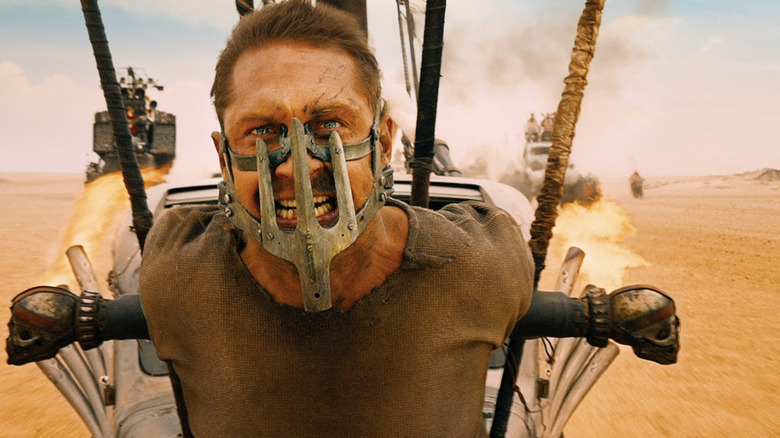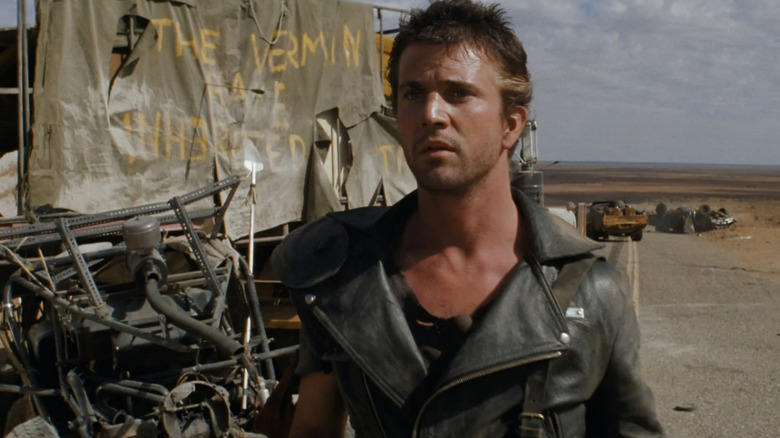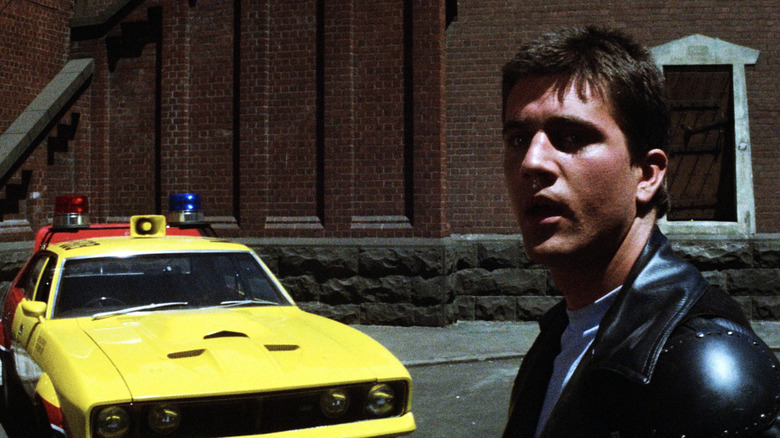George Miller Doesn't Think He Had Much To Do With The Success Of Mad Max
Since the release of the original "Mad Max" film in 1979, the series has only increased in popularity. With the sequel, which was titled "The Road Warrior" in the U.S. and "Mad Max 2" everywhere else, the franchise gained a plethora of new fans on top of the cult following it had already been growing. The story of Max Rockatansky was one that viewers could resonate with for many different reasons. Moreover, the fact that the films maintained a high quality immensely helped with their reception as well.
There are a lot of defining features of the "Mad Max" films that make the series so appealing to audiences. From the insane vehicular combat to the impressively shot chase sequences, "Mad Max" has always been a solid form of entertainment. However, Miller believes he shouldn't take credit for Max's journey through the wasteland being open to multiple interpretations. Being the ever-so-humble filmmaker, George Miller would not take credit for how well the original film turned out. In fact, the director saw the making of the original "Mad Max" film as nothing short of a disaster.
A disastrous production
In an interview with The Guardian, George Miller spoke about how disastrous he felt the film's production was. Miller's lack of faith in himself as a filmmaker at the time led to him re-thinking almost every aspect of the production and constantly having regrets about how he went about making it:
"The film was a complete disaster to me in terms of what I wanted to do. I really thought I wasn't cut out to make films. My partner, Byron Kennedy, and I had raised a pretty meager budget from our closest friends from school. So there was an obligation to get them back their money. It was a terrible thing if we didn't do it. We had no money for an editor, so I cut the film myself for a year. And every day for a year I was faced with the evidence of what I hadn't done, what I'd failed to do. Why did I put the camera there? Why didn't I ask the actors to go faster? Every day facing this film, this wreck."
"Mad Max" was George Miller's directorial debut, so it's only natural that he would feel uncertain about his work. Whatever the case, "Mad Max" would become a long-lasting and successful franchise with massive appeal. However, given Miller's doubts in himself throughout making the film, he isn't quick to take credit for how resonant "Mad Max" would end up being with international audiences.
The power of storytelling
In the same interview, Miller would give examples of different interpretations of "Mad Max" from varying nationalities. However, this universal appeal is something he would never take credit for. At least, Miller believes it wasn't something he had done intentionally, seeing it as a byproduct of a hectic production filled with passion and uncertainty.
"In Japan, they saw it as a samurai film. The French called it a western on wheels. In Scandinavia, it was a Viking movie. And I was smart enough to know that this wasn't a result of anything I'd done consciously. If the work had gone smoothly, I might have fallen victim to hubris."
Miler's refusal to take credit for the universality of the "Mad Max" films is fascinating. The filmmaker has an intimate view of storytelling, which is especially evident given his newest film, "Three Thousand Years of Longing," which focuses on the power of stories and how people individually interpret them. The director taking credit for how easy it is to empathize with Max or enjoy the films he is in would make for less interesting conversation. Instead, George Miller would give the credit to our inherent nature of appreciating stories, as he would also say in the same interview:
"We're creatures of story, we're hardwired for story. That's how we make sense of the world."


